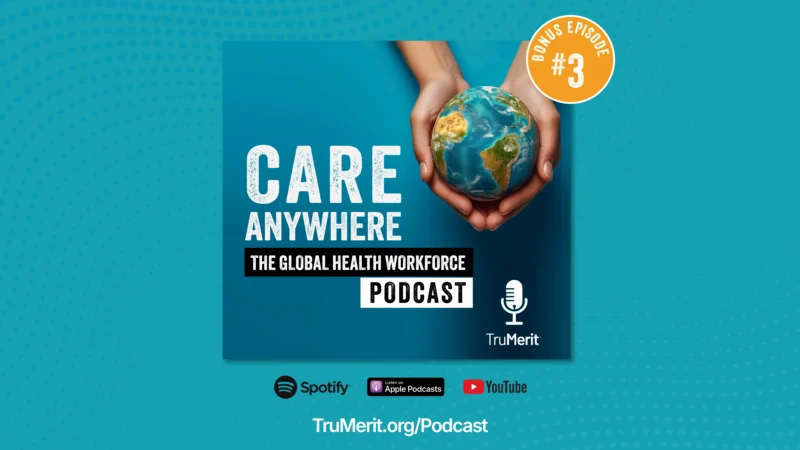Solving the Problem of Verifying Vaccinations
The challenges healthcare executives and administrators face are constantly changing. Host Kevin Stevenson talks with the heroes behind the heroes that are enabling hospitals, urgent care centers and telemedicine operators to spend their time tending to patients, while they handle the logistics.
The pandemic has strained healthcare systems beyond compare, but there’s renewed hope for all with the vaccine now available. However, the rollout for vaccines has been challenging, and the next biggest hurdle is how to verify vaccine documentation. Host Kevin Stevenson spoke with Mike Joyce, Client Strategist and Engagement Partner, at Theorem. Theorem is an innovation and engineering firm that solves complex challenges for the world’s most admired organizations. The organization built a mHealth Platform for AT&T to share clinical data in a compliant and secure manner.
Verifying vaccinations is both a complex and simple problem. “Transmitting verifiable information through secure tunnels and layers of trust isn’t new. Implementing is the real problem,” Joyce said.
The challenge stems from multiple stakeholders and a fragmented healthcare system.
“With a digital certificate, the issue is we don’t know where it’s going to be used. Investment in a system designed to accommodate flexibility will be key,” Joyce added.
In breaking down the parties involved, there are the holders (consumers), the central authority (issuer), and the verifying party. The move to require vaccines for certain activities is likely coming. The verifiable platform will also need to be global.
The technology is already there. Microsoft, Salesforce, and Oracle are developing a digital solution to access COVID-19 vaccination records, but that’s just the first part. “Technology is great in developing the scaffold. Regulators need to take the next step for consistency in the process,” Joyce shared.
Privacy and security are another issue, but Joyce noted that the cryptographic protocols already exist for protecting sensitive data. The looming constraint is infrastructure. “someone has to write the software to integrate with healthcare records and appointment platforms. It will require more investment than a paper-based method. There’s a systemic issue in healthcare with sharing data,” he said.










